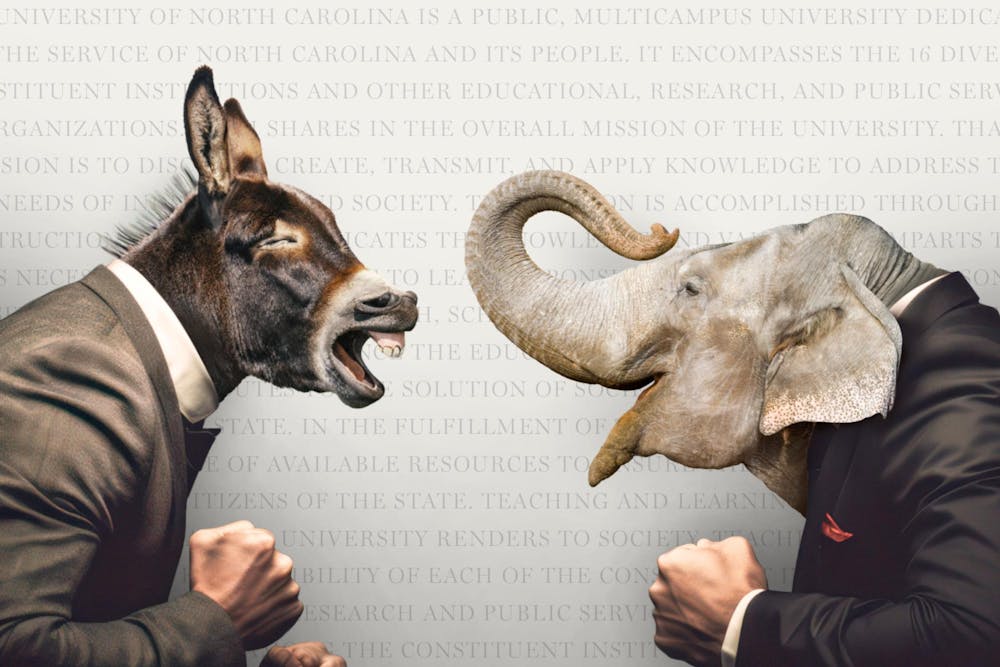CORRECTION: A previous version of this article included incorrect information about the membership regulations of the Board of Trustees and the makeup of the UNC Administration and Faculty Governance. The Daily Tar Heel apologizes for these errors.
As Lee Roberts steps into his new role as interim chancellor at UNC, some members of the campus community are questioning the influence of politics at the University.
The top offices of UNC's administration include the chancellor and provost. Interim chancellors are appointed by the UNC System president. To hire a permanent chancellor, a search committee must present a number of candidates, of which the UNC Board of Trustees selects at least three. The UNC System president nominates a candidate from the search committee's selection who is then approved by the UNC System Board of Governors. Roberts — who worked as budget director for former Republican Gov. Pat McCrory — was appointed as interim chancellor by current system President Peter Hans in December.
The provost is hired by the chancellor and is approved by the UNC Board of Trustees. Christopher Clemens has been provost since 2022.
There are 24 voting members that sit on the BOG, all elected by the N.C. General Assembly. The BOG oversees 17 universities in the state of North Carolina, including all the UNC System schools.
On the BOT, there are 15 members, four of whom are elected by the N.C. General Assembly and eight elected by the BOG. In November, the BOT expanded and welcomed two new members in accordance with a bill passed by the General Assembly. The student body president, currently Christopher Everett, acts as the 15th ex-officio member.
Everett is the undergraduate student body president and Lauren Hawkinson is the current graduate student body president. Candidates are elected each school year and the next sitting members will be elected on Feb. 14.
Political science professor Frank Baumgartner said that since coming to the University in 2009, he has found the level of political involvement in University governance to be troubling.
“North Carolina in the last 10 years or so has been subject to a lot of controversies and a lot of insertion of pretty raw politics into university life,” he said.




